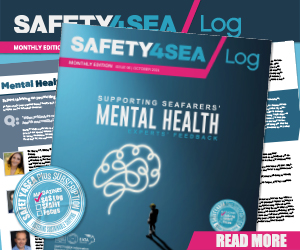World Ports Climate Action Program (WPCAP) provided updates on progress and made agreements on how to proceed with the various processes, especially regarding the development of shore power and alternative fuels.
According to Jarl Schoemaker of the Port of Rotterdam Authority, at the moment the group is mainly looking at best practice sharing, opportunities to scale up shore power worldwide and possibilities to improve the technical standard.
To this end we will bring our views to the International Electrotechnical Commission, which sets all the standards for electrical and electronic equipment. We see possibilities for improvement and can help grow the roll-out
This is helpful in Europe where the European Commission’s Fit for 55 programme is coming with requirements in the area of shore power, particularly for container and cruise vessels and ferries.
Alternative fuels
Another area that WPCAP is involved in is the preparation of ports to handle vessels using alternative fuels as part of shipping’s mandate to decarbonise. Given the fragmented fuel mix of the future, this is a very complicated landscape for ports that must navigate various aspects, including safety, governance, social engagement, and commercial factors. These factors may differ based on services the port offers, ranging from basic vessel calls to bunkering, maintenance and industrial services.
The considerations for a port call from a vessel using ammonia would be different to that for a vessel looking to bunker hydrogen or an e-methanol ship that needs repairs
explains Cees Boon from the Port of Rotterdam.
The WPCAP working group on alternative fuels is aware that there are a number of organisations also attempting to address challenges in the future landscape and identify opportunities for ports. These organisations include the International Association of Ports and Harbors (IAPH) through its Clean Marine Fuels (CMF) group, the Getting to Zero Coalition, class societies, think tanks and many more.
[smlsubform prepend=”GET THE SAFETY4SEA IN YOUR INBOX!” showname=false emailtxt=”” emailholder=”Enter your email address” showsubmit=true submittxt=”Submit” jsthanks=false thankyou=”Thank you for subscribing to our mailing list”]
Representatives from the working group were invited to attend the IAPH CMF meeting, which had a focus on further developing its suite of bunker checklists and audit tools.
The IAPH group had created the basic building blocks of a safety framework to address the use of alternative fuels by vessels in ports. The discussion with WPCAP centred on the next step to create a tool to facilitate transparency around a port’s ability to accommodate such vessels.
IAPH’s CMF Working group and WPCAP Working Group 4 agreed that the latter would develop this tool over in Vancouver.
Industry standard
Boon was inspired to use the existing Technical Readiness Level (TRL) tool that has already been established as an industry standard in order to create a Port Readiness Level indicator for Alternative Fuels for Ships (PRL-AFS).
The PRL-AFS is a nine-step indicator tool that tracks the progress a port offering port call or bunkering services would make towards its eventual status as completely ready to accommodate vessels using individual fuels.
In addition to the indicator, we have developed a useful visualisation to indicate the status of each port for each alternative fuel in a glance – which we believe will appeal to stakeholders such as shipowners/operators, regulators, fuel suppliers, etc
stated Namrata Nadkarni, chair of the working group and founder of maritime consultancy Intent Communications.
Although the path for this working group’s future beyond 2023 is yet to be determined, the intention is to use the coming months to refine the indicator, see if it would apply to other port types, and share it with relevant stakeholders such as the International Association of Ports and Harbors (IAPH), CMF, International Chamber of Shipping, the Getting to Zero Coalition of the Global Maritime Forum, International Association of Bunker Operators, etc for feedback.

































































